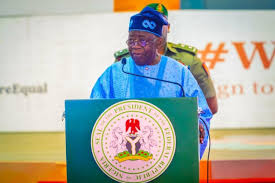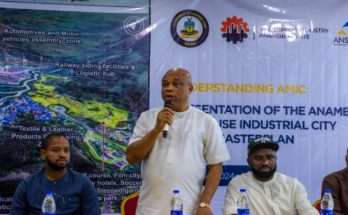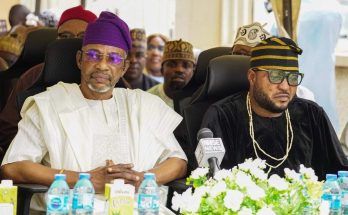President Bola Ahmed Tinubu marked his first year in office on May 29, 2024. Although there was no formal ceremony to celebrate the day save for commissioning of some projects, what is evident is that Nigeria is witnessing a transformative era of growth, development, and progress. Despite the challenges inherited, the Tinubu administration has demonstrated a commitment to good governance, infrastructure development, and the welfare of Nigerians.
The journey to Nigeria’s current democratic dispensation was marked by the sweat, tears, and resilience of men and women who fought for the return to democracy. Asiwaju, a prominent figure in NADECO, was a key player in the pro-democracy struggle between 1994 and 1998. After years of military rule, Nigeria returned to democracy on May 29, 1999, with the inauguration of President Olusegun Obasanjo.
However, despite these transitions, Tinubu’s predecessors failed to address a critical flaw in the 1999 Constitution. Section 162 (6) established the State Joint Local Government Account (SJLGA), which has been described by public administration experts as a “barbarism” that has hindered Nigeria’s progress.
Fortunately, President Tinubu is taking steps to correct this anomaly, with a landmark move towards strengthening local government financial autonomy. By approaching the Federal High Court, the president paved the way for local governments to receive their allocations directly, free from state government interference.
Consequently, the Federal High Court judgment affirmed the financial autonomy of local governments, paving the way for a more democratic and decentralized system of governance. The Supreme Court is also poised to make a pronouncement to this effect soon, following the suit instituted the Tinubu-led federal government.
The Tinubu administration has also made significant strides in upgrading Nigeria’s infrastructure. The Lagos-Calabar coastal super highway project and the expansion of the Lagos-Ibadan expressway are underway.
To tackle insecurity, the administration has taken bold steps, including the order for 50 fighter jets to support military operations against Boko Haram and other terror groups. This is part of plans to further boost its counter-terrorism capabilities. President Tinubu has made large investments in bolstering its counter-terrorism capabilities, including last month when it received 20 armored personnel carriers. The army also announced that it will soon receive an additional fleet of tactical armored vehicles to help combat growing threats from bandits and terrorists.
Tinubu has also prioritized transparency and accountability, exemplified by the directive for the Central Bank of Nigeria to take over crude oil sales from the Nigerian National Petroleum Company Limited. This move has introduced a new era of openness in the oil sector. Within its one year in office, the government also introduced the Student Loans Scheme and Consumer Credit Scheme, aimed at supporting education and financial inclusion. These initiatives have the potential to empower Nigerian youths and stimulate economic growth.
The administration also launched the Accelerated Senior Secondary Education Programme, targeting the North East region, and the Renewed Hope Cities and Estates project, a nationwide initiative aimed at providing affordable housing and revitalizing urban development.
Also, the Ajaokuta-Kaduna-Kano (AKK) gas pipeline project is nearing completion, with significant economic benefits expected for Nigeria. The AKK gas pipeline is a 40-inch, 614-kilometer linear pipeline system running from Ajaokuta to Kano. It includes associated intermediate and terminal gas facilities, as well as all other related equipment necessary for transporting natural gas to off-takers at Abuja, Kaduna, and Kano. According to the federal government, the Nigerian National Petroleum Company Limited (NNPC Ltd) aims to expand the existing gas pipeline network within Nigeria in response to the increasing demand for power and the need for gas-based industries.
Under President Tinubu’s ambitious Renewed Hope Agenda, the North is experiencing a remarkable transformation. Recently, Minister of the Federal Capital Territory, FCT, Nyesom Wike, said that President Tinubu is behind every development he is bringing to the nation’s capital. Just like he turned Lagos into a great city, he is poised to ransform all of Nigeria, beginning from the North as evident in the ongoing infrastructural development in Abuja.
To ensure a seamless development plan in the region, the president approved the “Pulaaku Initiative”, a non-kinetic solution to deal with insurgency and banditry in the North, and has equally allocated the sum of N50bn to the initiative, in its first instance. This initiative aims to enhance living conditions and livelihoods in selected states, starting with Sokoto, Kebbi, Katsina, Benue, Zamfara, Niger and Kaduna. The construction of residences, roads, schools and other essential facilities has already commenced, promising to catalyse the fortunes of the North.
Upon assumption of office, the Renewed Hope government led by President Tinubu took two significant steps towards economic reform: the removal of fuel subsidies and the unification of exchange rates. These moves have brought numerous benefits to the country’s economy and citizens.
For instance, the removal of fuel subsidies is a crucial step towards reducing the financial burden on the government. Subsidies have been a significant drain on the country’s resources, with billions of naira spent annually. By removing subsidies, the government is redirecting these funds towards more pressing areas such as education, healthcare, and infrastructure development.
Needless to say, the unification of exchange rates has simplified foreign exchange transactions and has eliminated the multiple exchange rate regime that has led to confusion, corruption, and revenue losses. A unified exchange rate will promote transparency, reduce the risk of arbitrage, and encourage foreign investment.
Saving the best for the last, I deliberately left removal of fuel subsidy and unification of exchange rates to last paragraphs because bottom pot, they say, tastes better. These two policies are the flagship or master stroke programmes of this government.
The removal of fuel subsidies and unification of exchange rates are bold steps towards economic reform in Nigeria. These moves have started yielding numerous benefits, including reduced financial burden, increased transparency, encouragement of foreign investment, improved resource allocation, reduced smuggling, and increased government revenue. As Nigeria continues on its path towards economic growth and development, these reforms will play a critical role in shaping the country’s future.
Reduced Financial Burden: The removal of fuel subsidies has reduced the financial strain on the government, allowing for more resources to be allocated towards essential public services.
Increased Transparency: A unified exchange rate is now promoting transparency and reduce the risk of corruption, making it easier to conduct business in Nigeria.
Encouragement of Foreign Investment: A stable and transparent exchange rate regime is now attracting foreign investors, boosting economic growth and development.
Improved Resource Allocation: The removal of subsidies and unification of exchange rates will enable the government to allocate resources more efficiently, promoting economic growth and development.
Reduced Smuggling: The removal of subsidies will reduce the incentive for fuel smuggling, which has been a significant problem in Nigeria.
Increased Government Revenue: The removal of subsidies and unification of exchange rates is gradually increasing government revenue, enabling the government to invest in essential public services.
In January this year, Presiden Tinubu directed the Nigerian National Petroleum Company Limited (NNPC) to transfer revenue from crude oil sales to the Central Bank of Nigeria (CBN). The President, under the new arrangement, directed the NNPC to submit receipts for crude oil sales to CBN for vetting and documentation.
This means that receipts of payment for the oil sales are to be forwarded to the apex bank with immediate effect. The NNPC over the years had maintained sole control over crude oil sales, only rendering accounts to the federal government, leading to allegations of sleaze and misappropriation under previous administrations.
Under President Tinubu, the issue of modular refineries has gotten a fresh life of its own. Under past administration, some mafias in the oil sector were bent on stopping in-country refining of crude oil for the production of petrol, and other refined petroleum products, with operators of modular refineries confirming that they had raised this concern severally in the past but received no positive feedback.
Under Tinubu, we now have Dangote Petroleum Refinery, a modular refinery that will soon crash the price of fuel. Chairman of the refinery, Aliko Dangote said last week that the cabals in the oil sector were trying to sabotage him, but the will fail woefully. With subsidy removal, the nation now boast of $10billion subsisy remittance that will add economic value.
Even as he works tirelessly for a better Nigeria, the Lion in Aso Rock is watching and studying carefully the actions of some political leaders, who in most of their interviews with international media on the economy and security, have kept mute on the successes recorded by Tinubu administration. The citizens should ask these persons to explain what they did with the federal allocation given to them. God Almighty knows and most Nigerians know that President Tinubu has assisted state governors, Senators and Reps financially and politically even before he became the president of Nigeria. Why are they, especially those in opposition, hiding the facts? Both the opposition and the ruling party alike are benefitting from the president’s efforts like the increase in federal allocation following fuel subsidy removal. It’s high time we all joined our hands with President Tinubu to move our great country forward. Good enough, the leaders of major interest groups and unions, including People With Disabilities (PWD) and NUPENG are willing to support the Tinubu administration ensure that the Renewed Hope Agenda is actualized.
In conclusion, President Tinubu’s first year in office has been marked by significant achievements, demonstrating his commitment to Nigeria’s growth and development. As the administration continues to address the nation’s challenges, Nigerians can look forward to a brighter future under Tinubu’s leadership.




